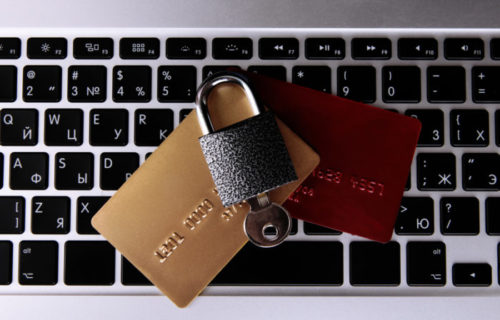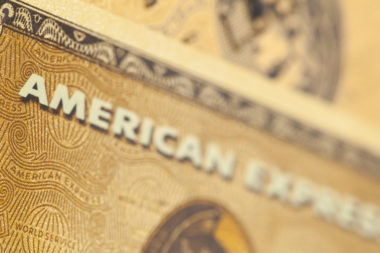
If you recently found out that your bank closed your account due to no voluntary action on your part, you may feel confused or frustrated but you’re not alone. From 2001 to 2005, banks closed over 30 million debit accounts due to excessive overdraft withdrawals.
There are myriad other reasons banks may take this action. It’s important to understand why your account was closed and develop a plan of action to open a new account. Using this guide, you’ll learn how to navigate this situation quickly and get back on your feet financially.
Table of Contents
Why Did the Bank Close My Account?
Unfortunately, a bank may choose to close your checking or savings accounts for no reason at all. A bank cannot close your account based on discriminatory reasons, such as your race or gender. However, there are no regulations that protect you from a bank deciding they no longer want to service your account.
While a bank doesn’t need a reason to close your account, in most cases, there is a reason for the involuntary closure. The sections below outline some of the common reasons a bank may close your account.
Your Account Has Been Inactive
It costs banks money and time to maintain customer accounts. They must keep good records and provide updated balances for checking accounts you open.
Every bank has its own threshold for how long it waits until closing an inactive account. Generally, when you haven’t deposited or withdrawn from an account for three to five years, it’s considered inactive and the bank will close it.
Repeated Bounced Checks or Overdrafts
Your bank expects you to monitor your checking account. If you don’t keep an eye on your account balance, you’re more likely to write a bounced check or overdraft the account. While the bank makes money from charging you overdraft fees, it expects you to put money back into the account as soon as you see that it’s negative.
The bank only allows so many bounced checks or overdrafts before closing your account. When you’re seen as an irresponsible account holder, you’re considered a liability to the bank. A negative account doesn’t help the bank with maintenance fees and investments so it’s likely to close the account if your account frequently has a negative balance.
Suspected Identity Theft
Another valid reason a bank may close your bank account is if it suspects identity theft. Banks are legally required to have processes and procedures in place that help you recognize identity theft.
The Federal Trade Commission’s Red Flag Rule requires that banks stop transactions that involve fake identification or other suspicious behavior. A bank may suspect identity theft if:
- A large sum of money is suddenly taken from your account.
- Your account is overdrawn by a large amount of money.
- There are foreign transactions posted to your account.
- There are suspicious wire transfers taken from your account.
If you recently traveled overseas or are engaging in foreign business, alert your bank so it doesn’t close your account. It’s important to monitor your credit report and bank accounts to ensure you haven’t become the victim of identity theft.
What Happens When a Bank Closes Your Account?
When a bank closes your account, they’ll notify you by mail. The notification also informs you about the reason for the closure and the current balance in the account or the money you owe the bank.
You’re provided with a check for the account balance, if any. If you owe fees to the bank, when you put any money into the account, the bank has the first rights to it until the fees are satisfied.
If you have direct deposit or automatic bill payments set up with your account, it’s important to cancel them immediately. Your closed account will cause these bill payments to bounce and deposits are returned to the sender.
Can You Reopen a Closed Bank Account?
You may qualify to reopen your closed bank account depending on the reason the bank closed it. If your account was inactive or there was suspicious activity, you may simply need to communicate with your bank to get the account reopened. However, if your account balance was negative for too long or the bank is closing its doors, you’ll need to open a new account somewhere else.
If you want to reopen your bank account, you must:
- Review the notification for the reason your account was closed to ensure you qualify to reopen it.
- Review the procedures and deadlines for reopening your account.
- Write a letter to your bank explaining why your account was dormant or to justify suspicious activity.
- Send the letter to your branch and follow up to ensure it was received.
If you can’t reopen your account because you missed the deadline, you may want to discuss other options with a bank representative, such as opening a new account with the same institution.
How to Get Money From a Closed Bank Account
If your bank closed your account and a direct deposit was already started, it’s immediately returned to the sender. You can contact the sender to provide new bank account details and get your payment.
If you had a balance in your account when it was closed, the bank may give it back to you in the form of a check. However, if you owe fees, the bank will first subtract the fees before providing you with the balance.
Switching Banks
It’s important to choose the right bank that can provide the accounts and features you need. If you know your account balance will remain low, find a bank that doesn’t have minimum balance requirements. You should also consider the services a bank offers and whether you can conduct business online.
If your employer pays with direct deposit or you want to pay bills with automatic withdrawal, choose a bank that offers accounts with these features. Consider how often you overdraft and review the bank’s penalty fees before deciding where to open an account.
What to Do After Your Bank Account Is Closed
Once you’ve opened a new account, it’s important to change your financial habits so your account isn’t closed again. Be sure to:
- Keep an eye on your checking account balance.
- Make note of all automatic bill payments and when they’re deducted.
- Review your bank’s policy for minimum balances and maintenance fees.
- Engage in the minimum number of transactions to keep the account active.
- Monitor your credit and account for suspicious activity.
If your bank closed your account, it’s important to understand the reason and take action. While it may be overwhelming and frustrating, take the time to review your options so you can open a new account quickly.
Image Source: https://depositphotos.com/






